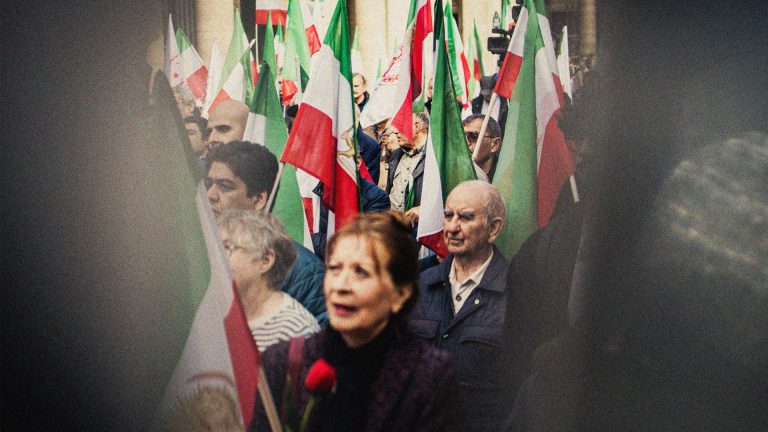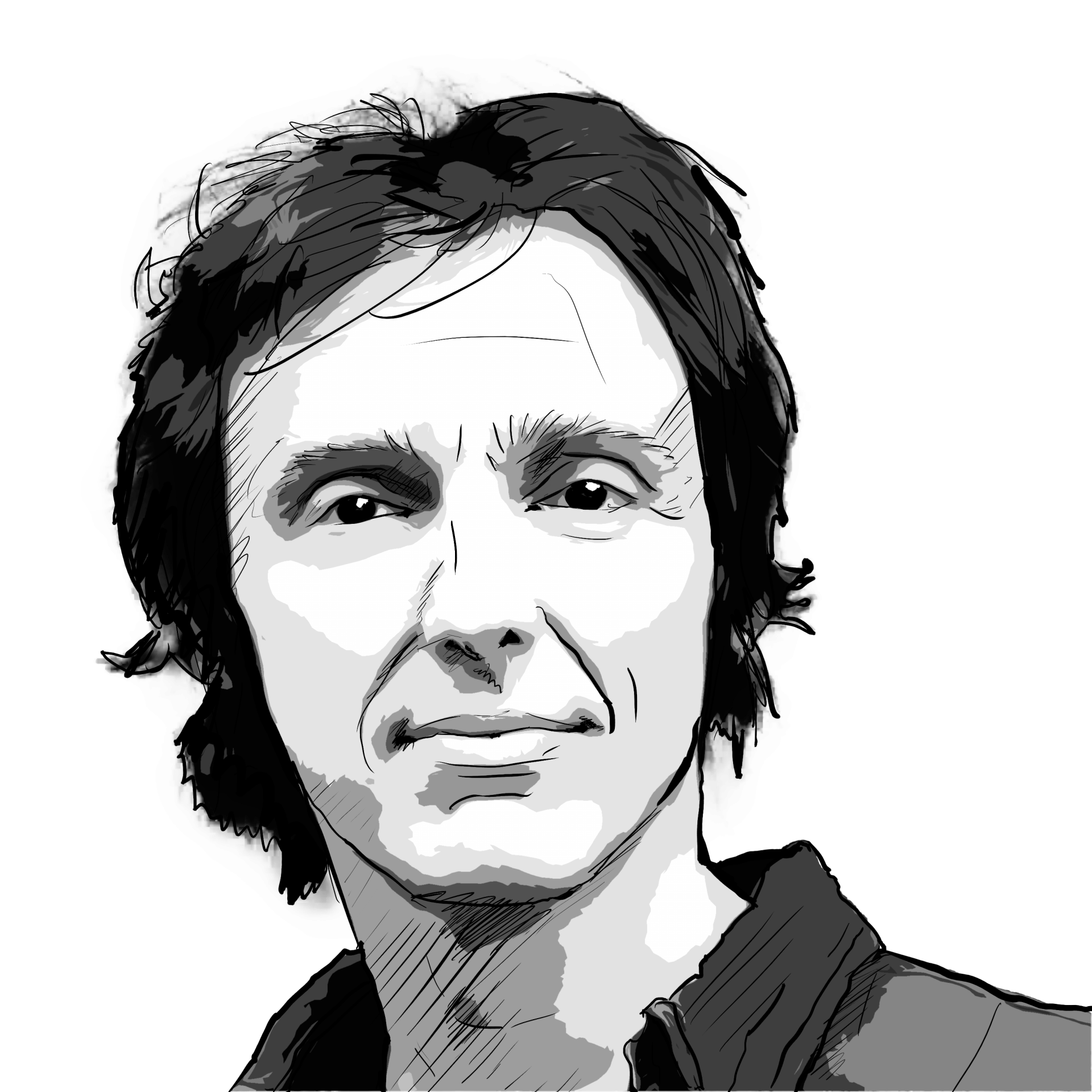
His 20 years in power have diminished his country, but Vladimir Putin seems more dominant than ever. GILES WHITTELL, a former Moscow correspondent, returned to Russia to examine the strength of Putinism.
In September, a young St Petersburg lawyer named Alexandr Shurshev stood for election to the city council. He did well. He ran on an anti-corruption platform and won the largest share of the vote in his district despite a series of fake stories on Facebook intended to undermine his campaign. The result should have guaranteed him a seat. Only it didn’t.
With most votes counted, police showed up at one of four district polling stations and left with the ballot boxes. Hundreds of extra ballots were stuffed into them for pro-Kremlin candidates and Shurshev’s vote share fell from 33% to 19%. That put him in sixth place in a system that assigns seats only to the top five.
Shurshev – who wears neat sweaters and affects a touching faith in the law – has filed suit demanding a seat on the council. “I’m not confident the court will find in our favour,” he says dryly. “But we’ll pursue this to the end.” In the meantime he’s out of politics for the next five years, unless he wants to spend them fighting a system that obeys no rules. He’s been detained, surveilled, threatened with blackmail. “It works on a psychological level and I fear it won’t stop there.”
This is not how Russia had to be. When I moved to Moscow 20 years ago Vladimir Putin had been prime minister for 16 days. He was the country’s fifth prime minister in 18 months. It was reeling from Boris Yeltsin’s inebriated mishandling of the transition to democracy, but at least a transition was still possible.
Now, deep into the age of Putin, the new Russia is a place of Burger Kings and Audi showrooms and new-build marketing suites. It’s a place of rideshare apps and superabundant coffee, of budget airlines and cheap breaks in Antalya for the many, not the few. The surface looks vibrant, as 2.3 million foreigners discovered during last year’s World Cup. In the Middle East, Putin is the Metternich of his age, signing deals with Turkey to fill a void left by America. But back home, the underneath – the structure that holds the country together and purports to work for its people – has congealed.
Russia is controlled partly by what Kremlinologists call a “power vertical”. The formal institutions of an elective dictatorship ensure that what Putin says, goes. In reality, fear and graft are as important, and the upshot is an extraordinary concentration of power – power that if it chooses can eliminate even the slightest political risk to the centre, like the one posed by Aleskandr Shurshev.
Authority is transmitted from Moscow to every corner of the federation as powerfully as in Soviet or Tsarist times. It’s conveyed by functionaries, but also, crucially, by state-controlled television and the internet. The same techniques are used to sow confusion and resentment abroad, helped along by social media. Multiple sources say methods used by Russian hackers in the US in 2016 are now being turned on Russian opposition activists for the first time.
“For the last 20 years Putin has built a large, complex influence system inside and outside the country, and there are no signs of it weakening,” says Viktor Semenov, a political consultant working for the liberal Yabloko party in St Petersburg. “On the contrary, each year it gets stronger.”
The ironies are obvious. The man at the top of this system is a creature of the KGB’s analogue world of lies and intimidation. He likes to call the internet an invention of the CIA. Even so, mainly in his second two terms, he has turned the net on its creators and weaponised much of what they claim to stand for. He doesn’t control the Russian internet, which remains a much freer place than in, say, China. But he uses it to great effect. Where there was supposed to be information he offers disinformation. Transparency? Confusion. Accountability? Kompromat.
This is a strategy that was supposed to be carried out entirely at arm’s length.
In practice the US intelligence community has linked some of Putin’s closest aides directly to the 2016 hacks, but that hasn’t deterred them. The disinformation juggernaut rolls on towards 2020 – when Trump stands for re-election – and 2024, by which time Putin hopes to have arranged the delicate matter of his own succession.
His information system has five main components, according to Andrei Soldatov, one of the keenest observers of Putin’s rise as an online influencer. These are: laws to curb freedom of speech; compliant media ownership; online surveillance; online censorship; and the constant, needling harassment of the liberal opposition.
Enter the unwitting stars of the Trump campaign – the trolls. Their first language is generally Russian but many of them operate in English. Some have never left Russia and most have no particular allegiance to Putin; they just need a job. As one expert on their work observes, there are probably more unemployed journalists wandering around St Petersburg than anywhere else in Russia.
Finding the trolls is hard, even so. The first place I looked was 55 Savushkina Street, a squat commercial building in a quiet suburb north of the River Neva. Everyone knows this is where the Internet Research Agency (IRA) was based when it flooded Facebook with fake news about Hillary Clinton before the 2016 election. Maybe someone knew where it had gone?
No chance. “Every business here is listed on the notice behind you,” I was told. “There is no Internet Research Agency. Goodbye.”
The IRA has acquired several new identities over the past three years. One is the Federal News Agency (FAN) – not so much a news agency as a collection of hundreds of fake social media accounts that seed the ether with bogus stories and drive them up news lists on aggregators like Google News and yandex.ru.
Last year the trolls were traced to a glass office block two miles from Savushkina Street, where the Pentagon’s Cyber Command managed to disable local internet access during the 2018 US mid-terms. When I asked there for Mikhail Bystrov and Mikhail Burchik (the top two names on a list of 13 Russians indicted for fraud and other crimes in the Mueller Report on Russian interference in the 2016 election), I was shown the door.
“It’s pointless to chase them round the city,” says Denis Korotkov, a former detective who has become one of St Petersburg’s most respected investigative journalists. “They change addresses and profiles so often. For them this is just contract work. They do it, and move on.” As for Bystrov and Burchik, Korotkov says anyone who claims to know who the disinformation kingpins are at any given moment is lying. “People are afraid to talk.”
OPERATION HIROSHIMA
The roots of this fear run deep. Most of the time they’re invisible but there is a street in Moscow where they lie permanently on the surface. This is Kashirskoye Shosse, a dual carriageway that runs south from the city, flanked by tall grey apartment buildings.
Ask nowadays to be taken to building 6/3 on Kashirskoye Shosse and the GPS will find it but the driver won’t. The building blew up at 5am on 13 September 1999, when several sacks of hexogen high explosive detonated underneath it. In its place, there is now a small park and a memorial to the 124 people torn apart by the blast or buried in the pile of smoking bricks it left behind.
Police surrounded the place before dawn. The press arrived a little later. I had been in town less than two weeks and it wasn’t even the first big story on my patch: a nearly identical bomb had destroyed another block of flats on nearby Guryanova Street four days earlier, killing 106. Five days before that, a car bomb tore the front off an apartment building in Buinaksk, in the southern Russian republic of Dagestan. The death toll that time was 64.
There would be one more ‘successful’ apartment bombing that month – in Volgodonsk, near Rostov-on-Don – and three that the security services claimed to have prevented. The third would have gone off in Ryazan, 100 miles down the road from Moscow to Samara. It differed from the other two in that the FSB, successor to the KGB, claimed afterwards it had only ever been an exercise. That cleared up one mystery about the Ryazan bomb. It had been planted by three FSB officers. But it didn’t clear up another. The sacks of ‘sugar’ that the FSB said had been planted under the Ryazan target did not in fact contain sugar. They contained hexogen.
Twenty years on most people in the park at 6/3 Kashirskoye Shosse know what happened there, at least in simple terms. “I was asleep at the time and woke up thinking it was a hurricane,” says a 65 year-old pensioner walking a terrier called Adolf. “Then I looked from the balcony. They say only two people survived. The rest were buried.”
Who did it? “We still don’t know.”
A driver for the army’s Red Star newspaper who gives his name as Igor Ivanov (and laughs at the idea that he’d give his real one) offers a short psycho-history of the district. “Everyone here was damaged. They lost people, family, friends, but if anyone knew who was to blame they wouldn’t tell you. Even my son in kindergarten will never know; nor will the generation after him. There are rumours that our people did it but that’s it – rumours.”
A 26-year-old taxi driver has more faith in the rumours. “People know the truth,” he says. “They know it was Vladimir Putin but they can’t say it.”
And how do they know? “You can see Litvinenko explain it all on YouTube.” He’s referring to Alexander Litvinenko, the former FSB agent who fled to England in 2000 and worked for MI6. Litvinenko popularised the theory that the Russian security services blew up their own people so that Chechen terrorists could be blamed and Putin would have a pretext for the second Chechen war that cemented him in power.
Polonium 210
To this day, sotto voce, arguments go back and forth in Moscow about the Ryazan bomb. To some it’s a slam dunk. One whistleblower claims the whole series of bombings was an FSB operation codenamed Operation Hiroshima. Others talk darkly about an oligarch who saw the sweep of Russian history even more clearly than Putin, and ordered them himself. But who exactly planted the Ryazan device is no longer the point. The point is that people point privately to Litvinenko on YouTube; and that every Russian who has publicly pointed the finger at Putin – among them Anna Politkovskaya, the Novaya Gazeta war correspondent; Boris Nemtsov, the former opposition leader; Yuri Shchekochikhin, a journalist and Duma deputy; and Sergei Yushenkov, another deputy – is now dead. All were assassinated except Shchekochikhin, who died suddenly of a mysterious illness.
Litvinenko, of course, was murdered in London with polonium 210 and has since been memorialised in the Lucy Prebble play A Very Expensive Poison.
He died in 2006. At that point Russia was booming. It would continue to boom for the rest of Putin’s second term and most of the Dmitry Medvedev interlude that followed. The political scientist Dan Treisman has collated the figures: Between 1999 and 2011 average Russian wages and pensions grew by 11% a year. Unemployment fell by two thirds. The value of the TV ad market rose by 2000%. By 2012 Russia had more cash machines per head than Britain or Japan, and more shopping mall space than anywhere in Europe.
There were concrete reasons to think Russia might be heading towards comfortable consumerism – but there was also the polonium. The sight of a defector dying slowly in a London hospital from an exotic radiation sickness incubated in the Urals was impossible to ignore. The assassins were from central casting. The motive was simple: to spread fear. The message at home was that treachery meant death at a time of Moscow’s choosing. The message abroad was that the rules-based international order could go hang.
Litvinenko’s murder set Russia on a long glide-slope to disgrace. The waypoints are by now familiar….
2008: Tanks into South Ossetia in defiance of independent Georgia.
2012: Anti-Putin protests crushed in Moscow.
2014: The great Crimea caper; war in Donetsk; the downing of flight MH17.
2015: Fighter-bombers to Syria in support of a dictator.
Less widely noticed was a massive Russian internet attack on Estonia in 2007, which gave the Kremlin a new sense of the possible. In 2016 the trolls and hackers waded into America’s election, and in 2018 the hard men of Russian military intelligence came to the quiet English town of Salisbury with a new poison and a new target, Sergei Skripal.
Putinism has had its high points. Somehow Russia hosted a Winter Olympics in sub-tropical Sochi, even though one slalom skier said the snow there felt like lobster bisque. Last year’s World Cup was a PR triumph (and a snip at $12 billion compared with $50 billion for the Sochi games). But these splashy open houses haven’t been enough to draw a veil over Putin’s career as a wrecker. He appears to be able to redraw international borders with impunity. He lets acolytes rub out his critics overseas, and smirks when asked about them, but there has been a cost.
Prebble was right. Litvinenko’s poison was expensive, because of its consequences: Pariah status, ever-tightening sanctions and a slow turn away from markets back to gangsterism. The Skripal hit said it all, and not just by underlining the security services’ fetish for deadly potions. (Skripal, another ex-Russian agent, nearly died from a heavy dose of novichok nerve agent applied to the door handle of his ‘safe’ house.) Asked to explain the point of it, one prominent Moscow businessman suggests it wasn’t carefully calibrated on the one hand or even embarrassingly botched on the other. Its purpose was to say to Britain and the West “f**k you”.
A different sort of leader might have spent these past 20 years diversifying an economy with many of the natural advantages of Canada’s and Saudi Arabia’s, and much of the affinity for tech that drives Japan and South Korea. Instead Putin has opted for stagnation and sullen nationalism. His country still depends on sales of oil and gas as the world seeks to ditch them. His people are immeasurably worse off than they might have been. The Litvinenko effect has pulled Russia into a fearful, corrupt, defensive crouch. At the same time it has pulled Putin into an information war that turns out to have been waged entirely in his comfort zone.
Darren Linvill, an American academic who has studied the methodology of Russia’s troll factories as closely as anyone, says it’s “more marketing than spycraft”. Even so, the skills and principles behind the trolling are vintage KGB. Know thine enemy. Always be lying. If in doubt, sow mistrust and dissent.
The Soviet spy manual also allows for outsourcing – think of Arthur Koestler spreading disinformation about the Nazis for the Comintern in the 1930s. So it’s not surprising that military intelligence (the GRU) should have competed with the FSB in the influencing game; nor that enterprising sycophants in Putin’s court should have seen an opening here as well. But some twists in the Putin tale you wouldn’t make up, and one is the rise of his all-conquering “chef”.
Captain Vitamin
During his first two terms Putin saw the break-up of Russia as the gravest threat to this presidency. He turned this to his advantage in Chechnya. He returned to the Kremlin in 2012 rattled by Moscow street protests that had been organised largely online. The new threat was the internet, and he turned it to his advantage with help from a convicted thief.
Yevgeny Prigozhin spent the last decade of the Soviet era doing time in a St Petersburg jail for robbery and crimes involving teenage prostitution. When he was released he set up a hot dog stand. Fast forward to the present and he enjoys many of the trappings of the oligarch lifestyle: Mansions in the city and on the Black Sea coast (the latter on a wooded headland close to Putin’s); at least two jets to shuttle him between them; and a 115ft superyacht called the St Vitamin.
They have been paid for from the proceeds of contracts with the Russian state worth an estimated $3.1 billion. Those who follow Prigozhin closely say he is not actually an oligarch, and the distinction is important. He wields no political power and harbours no political ambition. He embodies instead the rise of the obsequious thug.
Prigozhin’s contracts include one to feed most of Russia’s primary schoolchildren. He also maintains the mercenary unit known as the Wagner Group from a base in southern Russia, for sensitive foreign missions that Putin approves with eyes averted. In return, initially at his own initiative but in ever closer cooperation with the Kremlin, he bankrolls the trolls.
Prigozhin, who bears a passing resemblance to the late Fred Thompson (Die Hard 2, The Hunt for Red October), has not spoken to a reporter for five years. His closeness to Putin as proprietor of the president’s favourite St Petersburg restaurant was public knowledge before then, but his trolling operations weren’t. They were revealed in a document dump by the Anonymous International hackers’ collective in 2014, by which time he was already funding research trips to the US with a view to getting into America voters’ heads.
“To do this [Prigozhin’s people] had to develop a really strong understanding of the communities they were communicating with,” says Linvill, a professor at Clemson University who has compiled the world’s largest dataset of English-language tweets originating from Russian troll factories.
Russia has no monopoly on trolling, but Russian trolls have shown themselves to be effective. Linvill calls their approach “artisanal”; it relies on sustained interaction with hand-picked American social media accounts with big followings of their own. It also picks at the open sores of the American psyche – guns, race, Clinton conspiracy theories – and feeds a fetish for disaster.
The IRA’s early overseas successes included panic-inducing fake stories about a US ebola outbreak and an explosion at a Louisiana chemical works. The most effective 2016 US election troll tweet was more subtle. It was about an email to Hillary Clinton from her friend Sidney Blumenthal in which he appeared to tell her the 2012 jihadist attack on the US diplomatic compound in Benghazi was preventable.
Blumenthal said no such thing, but it’s worth pausing to examine the detail here. He did send Clinton an email about Benghazi that was obtained by Russian hackers, published by Wikileaks, mis-reported by the state-run propaganda channel Sputnik TV and amplified by a Twitter account, @TEN_GOP, that was traced a year later to 55 Savushkina Street.
It was timely. It tapped directly into US Republicans’ obsessive mistrust of Clinton and it might even have moved the dial on election day.
The decision to meddle so blatantly in American democracy was, according to Andrei Soldatov, an emotional one. He says it was announced by Putin to a small circle of advisors at a secret meeting in the Kremlin in April 2016, in response to the publication of the Panama Papers earlier that month. The papers appeared to show how Putin had funnelled at least $2 billion to a Caribbean tax haven with the help of a friendly cellist, and he was convinced the CIA had dumped them on the net to hurt him.
At their busiest the Prigozhin troll factories reached about 35 million unique users a month from perhaps 400 fake accounts. Linvill can’t help admiring the savvy behind some of their output. Others say its impact is overstated and more of a comment on American credulity than Russian wit. Denis Korotkov dismisses most of the tweeting aimed at foreign audiences as “linguistic vomit”.
If so, I ask him, is it wrong to take Prigozhin seriously?
Korotkov rolls his one good eye and sighs. “What do we know about Prigozhin?” he asks. “He’s got a monopoly on army food supplies for Russia. He has a large number of other military contracts in construction and technology. He doesn’t just feed the Russian army. He feeds the Russian president, the Russian Duma, the Russian government. He controls a huge media holding that employs hundreds of paid commenters. Then he has a private army of about 3,000 soldiers [the Wagner Group]. He can call on tanks, aircraft, artillery. His structures have contracts with Syria’s government for the development and exploitation of oil fields, and his representative in the Central African Republic has more influence than the Russian ambassador. So what do you think? Is he a big enough player to be taken seriously?”
Snow kills man
The work of the troll factories goes on. In the US, Facebook and Twitter have promised to try harder to shut down obvious Russian trolls but they can be hard to spot. “They know their audience really well and they know where to get the content to give them,” Linvill says.
He gives the example of a woman who threatened to call the immigration authorities to a taco van in Dallas on suspicion that its owner was undocumented. A single tweet became a divisive regional news story about racial profiling largely because retweeters 5,000 miles away picked it up and pushed it.
A favourite technique is the bait and switch. In July, an IRA account retweeted a blameless video clip of a two-year-old African American boy bouncing on his bed. More than 400,000 people ‘liked’ it. Having got their attention the troll tweeted an apparent non-sequitur attacking Joe Biden, then Trump’s leading Democratic challenger, for his record on race.
Back home, the influence system has turned its guns on the opposition. Liberal politicians in Russia are used to being barred from standing and jailed on bogus charges. Being on the wrong end of malicious tweets may sound mild by comparison, but where western social media companies are involved it makes them complicit.
Thirteen months ago the Russian presidential jet flew in to St Petersburg on a brief and unannounced visit from Moscow. Putin had come to dismiss the sitting regional governor and replace him with an apparatchik, a yes-man of unbending loyalty. The only difficulty was that Aleksandr Beglov would face election within a year and was unelectable. He had no charisma, imagination or political experience and he stumbled over his words when speaking in public. Worse, St Petersburg was paralysed by blizzards during the first winter on his watch, and a young man from Uzbekistan was killed by a falling block of snow that should have been cleared from the roof above him.
“It wasn’t a good look for a city used to snow,” says Ksenia Klochkova, a journalist who covered the Beglov story for Fontanka.ru, an independent local news site. “Roads were covered with ice and hospital queues went out the door. It was a very negative episode for Beglov because he was supposed to be competent if nothing else, and the city didn’t have the right equipment.”
Team Prigozhin rode to the rescue. They smeared each of Beglov’s opponents on specially created Facebook pages, flooded social media with pro-Beglov puff pieces and dumped thousands of snow shovels bearing his name in the city centre.
It might have been comical, if seeking the truth about Prigozhin’s operations wasn’t so dangerous. The murder of two Russian journalists killed when investigating the Wagner Group in the Central African Republic last year remains unsolved. Denis Korotkov, while looking into Prigozhin’s work in St Petersburg, received a funeral wreath at his office. A severed goat’s head was found soon afterwards in a bin outside the door.
What is success for this system of fakery and fear? Where does it stop? The first answer seems to be that success is the succession. If Putin is to stand down in 2024 he wants an orderly handover of the keys to the kleptocracy, without the possibility of an alternative centre of power.
“Putin wants Beglov here to have complete control over Russia’s second-biggest city as the end of his term approaches,” Klochkova says. (The smart money until recently was on defence minister Sergei Shoigu as his anointed heir; the stodgy former emergency situations minister was recently filmed sharing a birthday mushrooming trip with Putin in Siberia. Now the talk in Moscow is of the smooth elevation of Sergey Kiriyenko, Putin’s first deputy chief of staff and his kingpin of domestic politics.) But there’s a broader definition of success in the influencing game, and it has to do with mind control.
The goal is nothing so specific as the election of a craven pro-Russian narcissist to the White House. In the end that was probably as much of a surprise to Putin as to Trump himself. Rather, the goal is to deny the opposition the freedom of the net, and then to use it as Soviet power used television: To dictate where possible and persuade where necessary. In particular, Putin has set out to persuade Russians and non-Russians that his country is under siege by Nato; and that western liberal democracy is no better and in fact less moral, fair and effective than his ‘managed’ version.
The idea is that in the fullness of time the first of these arguments will bring forgiveness for Crimea, and the second will make Putinism permanent.
“Cynicism was Putin’s gift to America,” Soldatov writes. And his gift to Russia? That depends who you ask. Some young voters are showing a new defiance on social media, on the streets and in elections. “They’re great everywhere,” says Semenov, the Yabloko consultant. But for the elderly who still get their information from TV, “after 20 years of watching while Putin erases the competition, people think only he can solve their problems,” says Shurshev, the lawyer robbed of his council seat. “Even for most of those who get their information from the net there’s still no alternative to Putin, and that’s a problem.”
It’s a problem for which he and others blame Facebook, at least in part. He accuses Mark Zuckerberg, the Facebook CEO, of failing to keep his promise of a crackdown on IRA-style trolling. “We have seen that the systems aren’t working,” he says. “You can complain to them but they don’t reply.” Klochkova adds: “It was a huge scandal in the US but when the same thing happens to us and it’s Russian Facebook pages that need blocking, nothing happens. They are ready to appear responsive to American complaints, but not to ours. Do they know they are supporting Prigozhin?”
Facebook said the complaints would have been reviewed by its Community Operations team and that a selection of pages was reviewed again by a separate team after being forwarded to them. A spokesperson said: “Based on our initial investigation we haven’t seen any violations of our policies, nor have we found any links to the Russian Internet Research Agency.”
The company claims to have taken down more than 50 networks worldwide in the past year for what it calls “coordinated inauthentic behaviour”. It accepts that the IRA and its successors operate under many different names. Even so, none of the fake stories or accounts complained about during St Petersburg’s recent elections has been taken down.
Putin is not invulnerable. Far from it. The Navalny anti-corruption movement runs a website that shows Russians who they can vote for to oppose the Kremlin. All they have to do is enter their post code. The site helped opposition candidates achieve their best results since Putin came to power in September’s municipal elections, and Putin is worried.
He can no longer buy his way out of trouble with oil money. Last year, he raised pension ages and paid with a sharp drop in popularity. He cannot neutralise Alexei Navalny, the best-known opposition figure in the country. Instead, Navalny was this month formally declared a “foreign agent”. The Levada Centre, which publishes Russia’s only trustworthy polls, found Russians were twice as willing to take part in a protest as two years ago, has been blacklisted as foreign-backed. Telegram, the opposition’s favourite encrypted messaging app, is having to fight off an FSB decryption campaign.
As I leave St Petersburg I feel briefly nostalgic for the old Russia; the one that felt so new in 1999. At the airport I choose bortsch over Starbucks and remember stories read and written about the still-exotic country that had spent the 1990s emerging, blinking, from its Soviet prison.
The nostalgia fades, replaced by a flash of optimism. I message Ksenia on Telegram to check some details on the Beglov story. She replies in seconds and for once – for the first time, in fact – it seems clear that there can’t be a permanent victory for Putinism in her country. There can only be his finger in the dyke.
Giles Whittell is a Tortoise editor and former Moscow correspondent of the Times. He is the author of Bridge of Spies: A true story of the Cold War.
This story was first published by Tortoise, a different type of newsroom dedicated to slower wiser news. Tortoise members get to shape our journalism – join for just £50 instead of £250 at tortoisemedia.com/friend and use the code TNE50.










